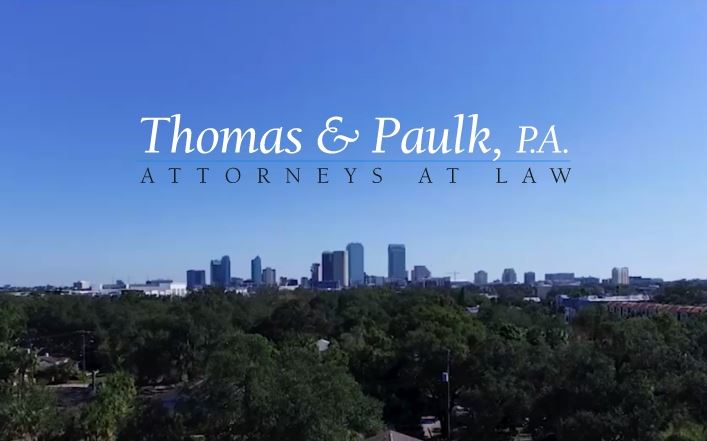
Obstruction of Justice
Charged with Obstructing Justice in Tampa? Call Our Team!
"Obstruction of justice" describes all unlawful acts that people partake in to obstruct, hinder, or delay the administration of justice. This term applies to law enforcement, courts, judges, and the government. For example, if a person evades police trying to make an arrest, they can be charged.
Examples of obstruction of justice include:
- Bribing witnesses
- Not reporting crimes
- Perjury
- Resisting arrest
- Contempt of court
- Aiding and abetting
- Threatening or intimidating jurors
This usually refers to the act of interference in any work that relates to:
- Police officers
- Prosecutors
- Federal agencies
- Judges
- Other government officials
Florida Statutes Title XLVI, Chapter 843: Obstructing Justice
According to Florida Statutes Title XLVI Chapter 843, it is an obstruction of justice to knowingly and willfully resist, obstruct, or oppose any officer doing their duty.
The following are examples of how this crime can be committed:
- Apprehending a legal aide or supervisor employed by the Parole Commission.
- Resisting any personnel or representatives of the Department of Law Enforcement.
- Being in unlawful possession of a concealed handcuff key to aid in escape from arrest.
- Bringing tools into jail to aid an escape or facilitate an escape in any way.
- Depriving a law enforcement officer of protection or communication, such as a gun, Taser, or walkie-talkie.
- Disguising yourself to obstruct the due execution of the law.
- Falsely impersonating a police officer or refusing to aid a peace officer.
- Resisting a timber agent or using a police badge falsely.
- Committing a crime against police dogs, firedogs, police horses, or SAR dogs.
- Depriving a crime victim of medical care.
- Publishing the name and address of a law enforcement officer or attempting to flee from an officer.
- Harassing a participant of a neighborhood crime watch program.
- Starting unauthorized transmissions and interfering with government-associated radio frequencies.
If you're facing obstruction of justice charges in Tampa, put your future in competent hands. Contact Thomas & Paulk today!
Reclaim Your Future
In the face of resisting arrest or obstruction of justice charges, your future may seem bleak. Instead of giving up hope, involve a team that will put your needs first in the fight for your rights and freedom. That's how we've successfully represented thousands of clients.
Tampa, FL Obstruction of Justice Charges
Resisting an Officer With & Without Violence in Tampa
You’ve probably seen an actor be accused of “resisting arrest” when watching a crime show or action movie. In such depictions, a person is often angry and belligerent, struggling with the officer. In reality, resisting arrest charges can be tricky. Some officers use it as a catchall for the slightest hesitation, delay, or resistance on behalf of the accused.
Resisting arrest is covered under Sections 843.01 and 843.02 of the Florida Statutes, which cover obstruction of justice. This crime is broken down into two offenses: resisting an arrest with violence against the officer and resisting arrest without violence against the officer.
Under Sec. 843.01, if someone “willfully resists, obstructs, or opposes any officer” while the officer is performing their legal duty and the individual uses violence, they are guilty of a felony of the third degree, punishable by up to 5 years in prison and by a fine of up to $5,000. Under Sec. 843.02, if someone willfully obstructs, resists, or opposes an officer while they are executing their legal duty, but without violence, the individual is guilty of a misdemeanor in the first degree, punishable by up to one year in jail and by a fine of up to $1,000.
Slow to Respond to an Officer’s Commands
When confronted by the cops, people can feel stunned. They may not be fully aware of what’s happening. It’s hard to believe, but if they don’t respond fast enough to an officer’s commands, they could find themselves facing charges for resisting arrest — even if the officer wasn’t in the process of arresting them at the time. However, this doesn’t mean that every delay in following an officer’s commands will end in resisting arrest charges—but it can happen under certain circumstances.
Facing Obstruction of Justice Charges?
When facing obstruction of justice charges, it is extremely important to consult a Tampa criminal defense attorney as soon as possible. An attorney can start taking preventative measures against a conviction and heavy penalties. After a person has been charged with a crime such as obstruction of justice, they must be informed of their rights. The best way people can become informed throughout the legal process is by retaining the services of a knowledgeable lawyer who can continually protect their best interests.
Examples of Resisting Arrest
When people resist arrest, they’ve generally done something to obstruct, resist, or oppose a law enforcement officer trying to perform their duties. To be clear, the officer does not have to be in the process of executing an arrest for someone to be charged with resisting arrest.
A person may resist arrest without violence by:
- Struggling while an officer is trying to arrest you.
- Running away from an officer who is trying to question you.
- Lying to the officer about who you are.
- Yelling at an officer and making it difficult for them to arrest you.
- Refusing an officer’s orders to put up your hands, get on the ground, lean against a car, or turn around so an officer can place handcuffs on you.
A person may resist arrest with violence by:
- Spitting on an officer while they try to make an arrest.
- Hitting, punching, or kicking an officer while they try to initiate an arrest.
- Headbutting an officer while they try to make an arrest.
- Drawing a knife or a handgun on an officer as they attempt an arrest.
- Attempting to hit an arresting officer with a hard object.
- Pushing or shoving an officer while they try to make an arrest.
In Florida, resisting arrest is a Class A misdemeanor or a third-degree felony depending if the defendant used violence against the arresting officer or not. If you are being accused of resisting arrest, we’ll want to know if the arresting officer was wearing a body camera because it may be valuable to your case if there is footage.
If you have been charged with obstruction of justice in the Tampa area, our team at Thomas & Paulk, P.A. is here to help. We have been fighting for clients across Florida for 20 years, and we are committed to seeking the best result for every person we represent.
Contact our Tampa firm today to discuss your obstruction charges!
-
We personally handle your defense strategy.
Our lawyers have been helping people just like you defend their future for decades.
View Results -
We always put our clients' cases and needs first.
Read our reviews to see what it is like working with our Tampa criminal defense law firm.
See Success Stories -
We're ready to hear your side of the story.
Tell us what happened to you during a completely free and confidential consultation.
Contact Us



